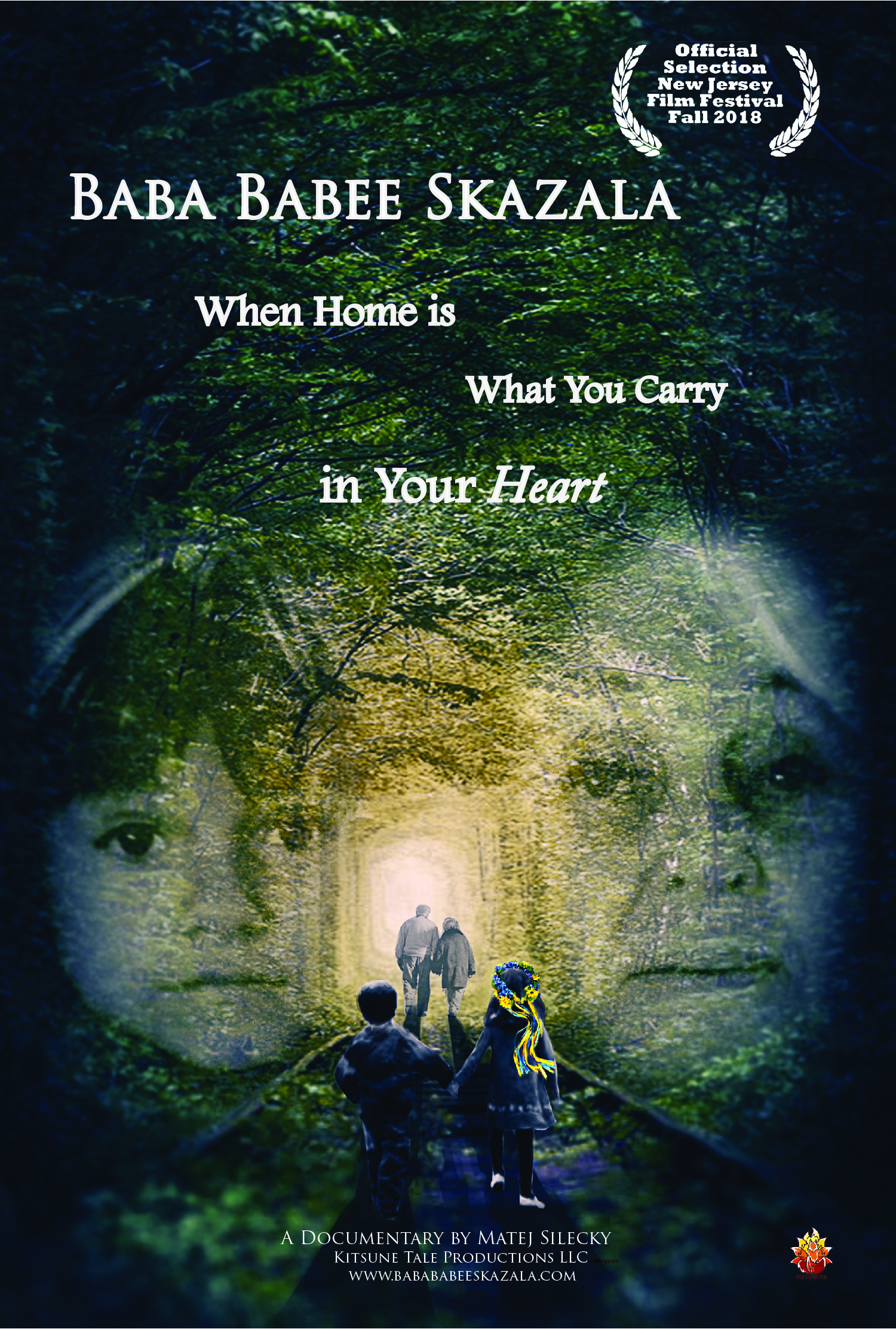First-time filmmaker Matej Silecky had his first documentary, “Baba Babee Skazala [Grandmother Told Grandmother],” premiere at the Fall 2018 New Jersey Film Festival on Oct. 7 at Rutgers University in New Brunswick.
“Baba Babee Skazala [Grandmother Told Grandmother],” is a documentary that centers around the unknown stories of Ukrainian children, who were torn from their homes during the “crush between the Nazi and Soviet fronts in World War II.”
Silecky, a New Jersey resident in Verona and also a grandson to one of the actual Ukrainian immigrants, came up with the idea for the documentary while taking a course on Soviet history while he attended school at University of California, Berkeley.
“My grandmother is a Ukrainian immigrant who fled during World War II,” Silecky said. “She fled between the Nazis and Soviets during World War II, and came to the United States to Ellis Island. As I was going to school, I took a few Soviet history courses because nowhere in the United States really offers Ukrainian courses. During this history course, I started to realize the importance of my grandmother’s stories that she told me when I was a kid. I had no idea what she was saying when I was younger. I didn’t really understand what any of this meant.”
While taking a Soviet history course, Silecky wrote a major paper recounting the tale of a Ukrainian immigrant as he fled from his home in World War II.
“My history teacher turned around and told me that my primary sources weren’t reputable, and she didn’t give me much credit for the paper that I wrote,” he said. “I asked her the question, ‘Is it because he is Ukrainian?’ and she had the courage to tell me yes. That’s when it all came together. I understood now; I understood what my grandmother was saying.”
While at UC-Berkeley, Silecky also took a few film classes, as well, because film had always been of interest to him. When speaking to others about the idea for this documentary, Silecky was met with praise for it and many told him he should definitely try to put it together.
“I started my travels; I went forward on this adventure in my last year of school,” he said. “I went down from San Francisco to L.A. and I started in the Ukrainian community in Los Angeles. That all branched out into the actual documentary and how it talks about much of the Ukrainian community as it is, and these were the real bricks that built the foundation to this documentary.”
Silecky had a connection through other Ukrainians he knew, which brought him to Los Angeles. There he found the community was a lot bigger than he expected.
“I had no idea that there was a Ukrainian community in Los Angeles, let alone in California. That community is huge,” he said. “Just from stepping into that community; everyone knew someone else, whether they were in California or another state. So as soon as I started doing a few interviews with some people who I was connected with through my grandmother, they all said, ‘This is great. I think this person should tell their story, too.’ This goes back to the title of the film, ‘Grandmother Told Grandmother,’ because it’s this constant connection from one person to another about sharing their story. All of these different stories from one person to another all hold history together.”
The documentary includes about 40 different Ukrainian individuals’ life stories, recounting their personal tales as they created new lives for themselves in a new setting.
“Bringing this documentary together was not about trying to set history straight. It was more so about trying to preserve the stories of my grandmother and Ukrainian people because that experience needs to stay alive,” he said.
Silecky not only wanted to portray the struggles of his people’s history, but he wanted to convey something more, as well.
“To me, the topics here are not solely centered around the Ukrainian people. It shows the importance of the conflicts of immigration, the conflicts of culture, community, heritage, and knowing where you come from and where you stand and knowing who you are in that moment,” he said. “These are conflicts that aren’t just representing Ukrainians and where they come from, but of Italians, Latvians, Lithuanians, Syrians – every culture around the world.
“This isn’t just about Ukrainians, this is about everybody. This is about each one of our cultures and our nationalities. There’s a reason why we came up with written languages; there’s a reason we document our family happenings; there’s a reason we try to pass down our family traditions from generation to generation; and it’s not because we’re trying to preserve our families and what makes us happy, it’s a lot larger than that. Love has more than one meaning.”
All the works selected for the Fall 2018 New Jersey Film Festival were screened by a panel of 15 judges, including media professionals, journalists, students and academics. These judges selected the 22 Finalist/Official Selection films, which will be publicly screened at the festival. These were selected from more than 507 works submitted by filmmakers from around the world.

